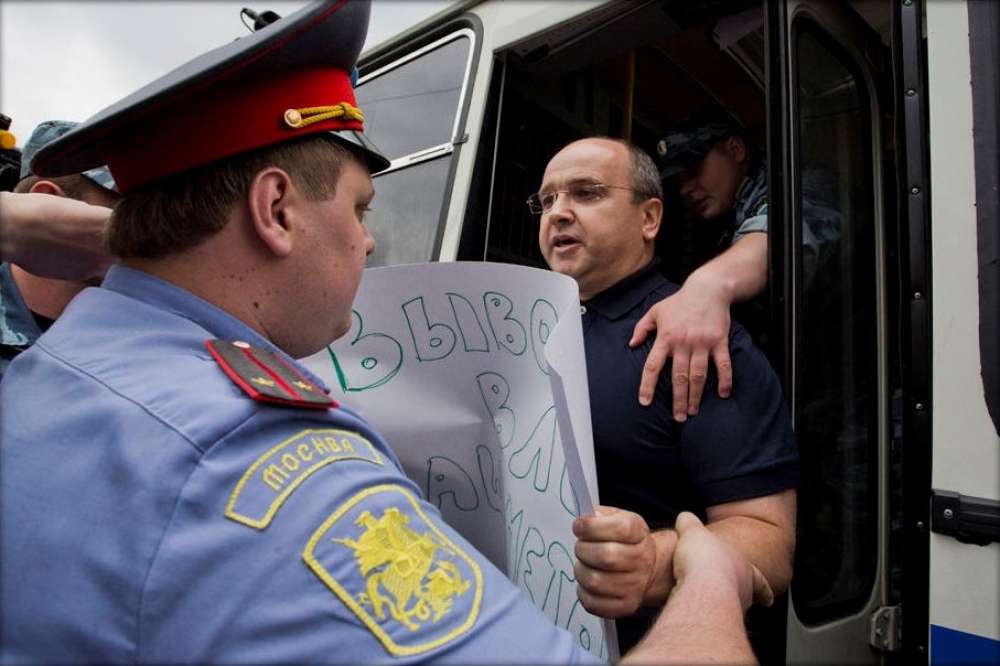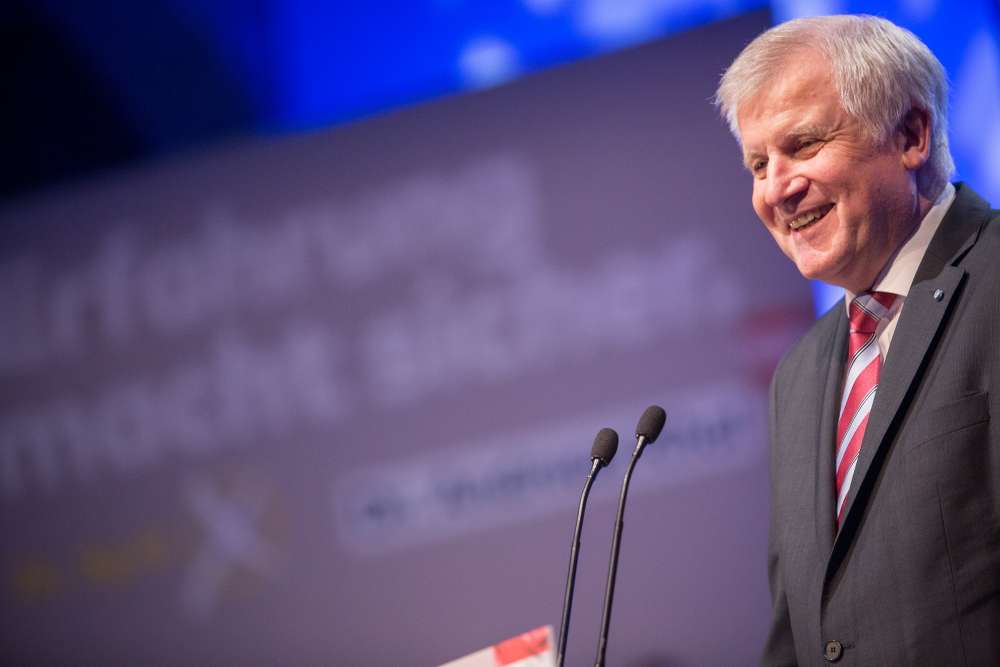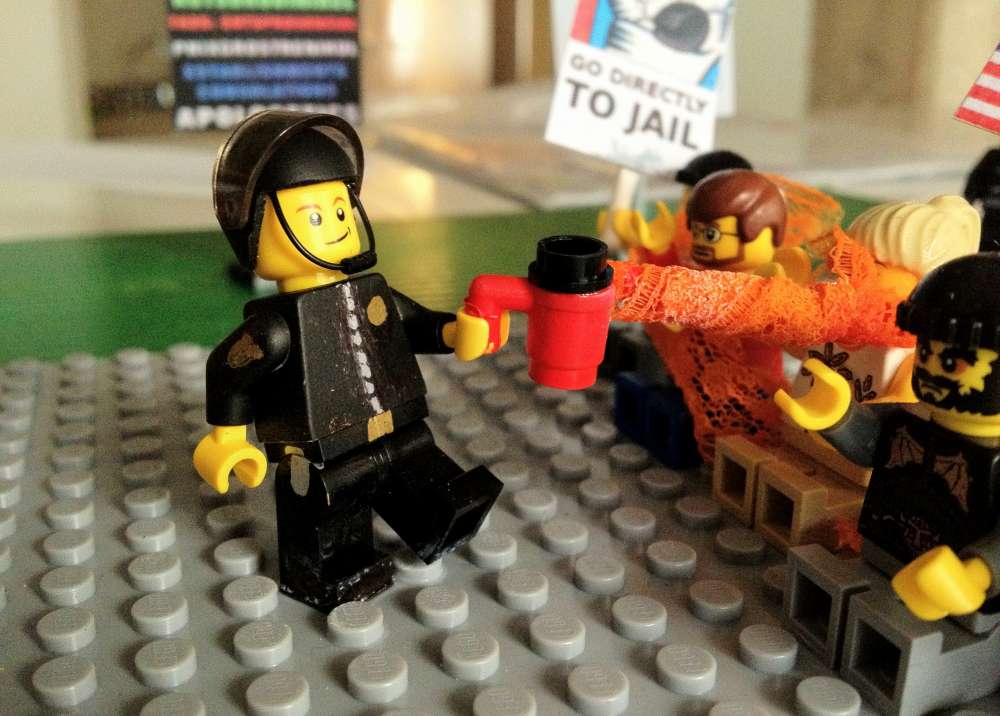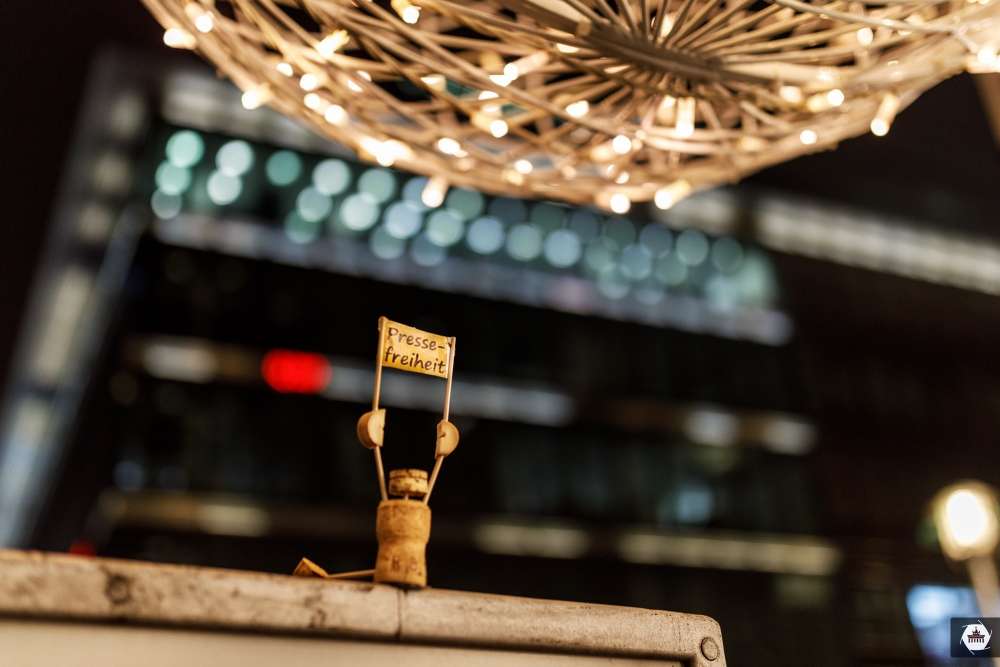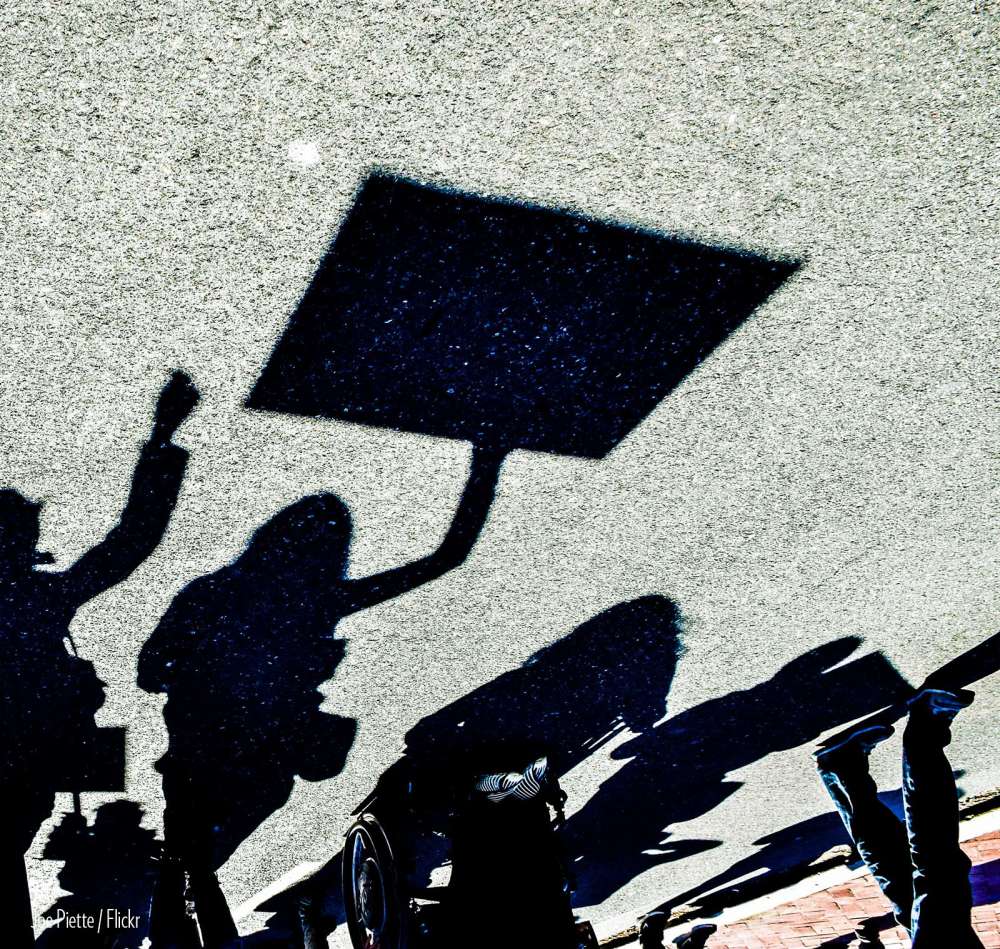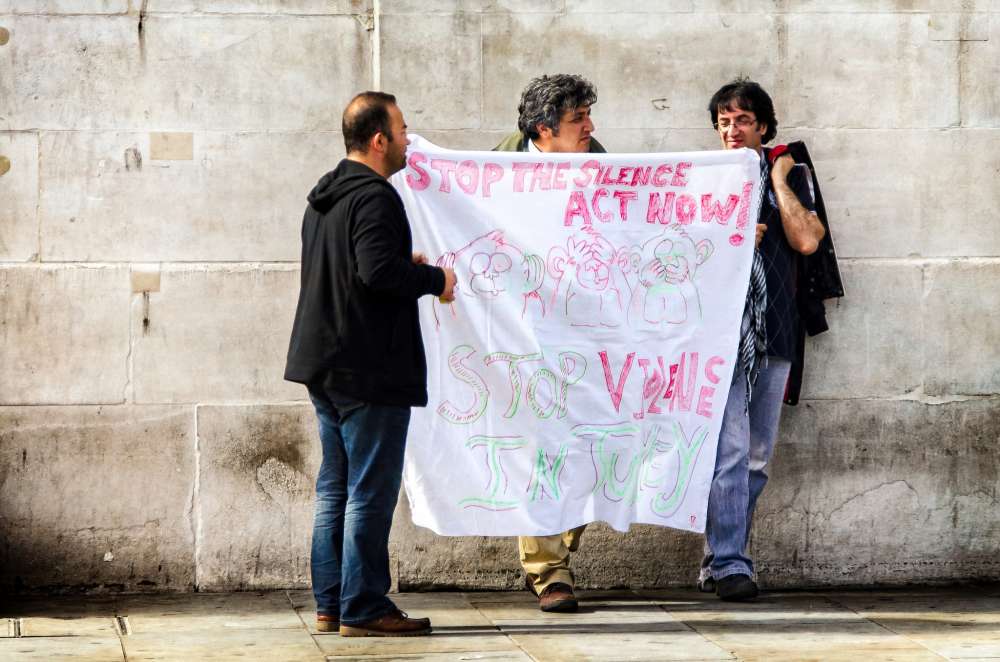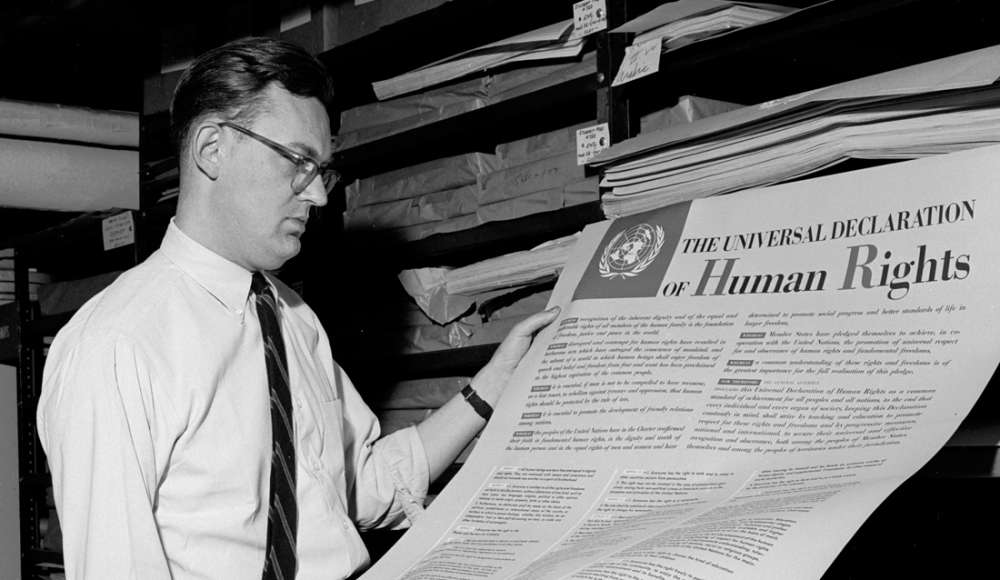International Day for the Elimination of Violence against Women
The problem isn’t Islam, the problem is patriarchy
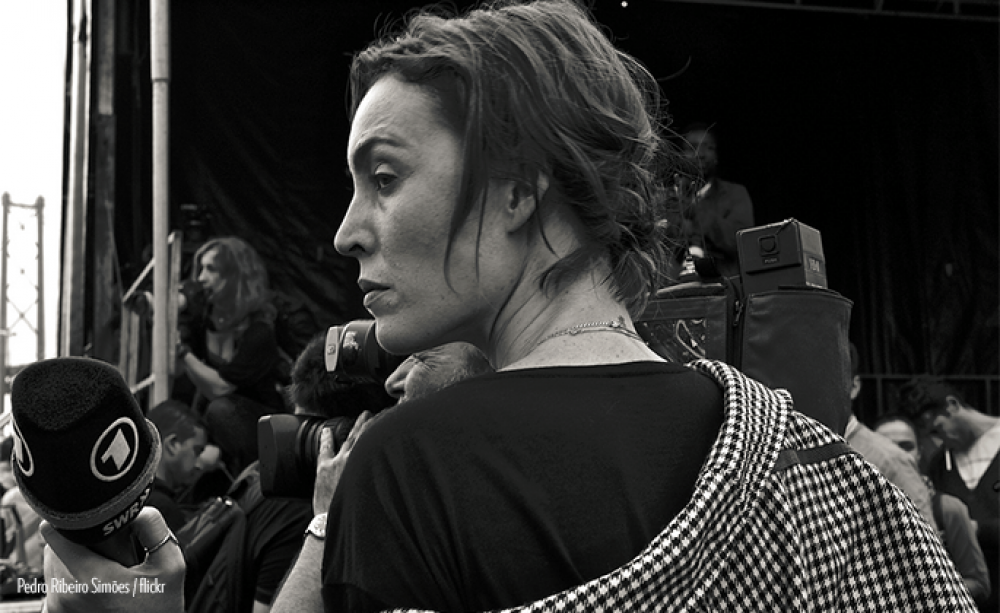
In the crisis year 2014, the world looked with horror towards Nigeria, where hundreds of girls were abducted by Boko Haram, and towards Syria and Iraq. We heard of the “Sex-Jihad,” “Allah’s wicked army” and Yezidi “sex slaves.”
Violence against women in conflict situations is finally getting more attention in the media, but caution should be advised. In some newspaper articles and television reports, disgust and dismay are quickly paired with voyeurism and Islamophobia. On the occasion of the International Day for the Elimination of Violence against Women, we should reconsider the way we deal with gender-based violence in this country and elsewhere.
If this violence is presented as culturally specific, as a non-German problem, and women only as passive victims, German media are themselves jointly responsible in building the social breeding ground for this pandemic which kills more women between the ages of 16 and 44 worldwide than cancer.
The multiple roles which women play in conflicts are often misrepresented or ignored. Women and girls are mostly – if at all – seen in the background, abused or crying. Kurdish female fighters such as the “beautiful angel of Kobane” are glorified and mystified as an exception and novelty, as allies of the West – provided they are young and pretty enough. The fact that women have long been an integral part of the Kurdish struggle is passed over. In general, the following applies: Instead of listening to women, women are talked about. If they get a chance to speak, it is as victims, to illustrate the barbarity in distant lands. As a consequence, they risk being re-victimized through insensitive reporting that leads to re-traumatization or stigma. This objectification of women in much of the media reinforces the socio-cultural structures on which gender-based violence is based. It has been established that objectification is just one small step away from violence.
This type of conflict journalism is also an excellent distraction from abuses in our own country. It would be a grave mistake to look away when women and girls in conflict become victims of violence. But instead of getting to the bottom of structural – global – causes, the abuse of women is used as an illustration of the otherness of the “Arab world,” fueling the image of Islam as a religion of hate. On this International Day for the Elimination of Violence against Women, it is important that we do not stop at pointing fingers. We should take the opportunity to address the perverted extent of gender-based violence in this country and the responsibility of the media in its perpetuation.
A recent report by the Fundamental Rights Agency shows that in Europe, 62 million women have experienced physical and/or sexual violence since the age of 15; in Germany this amounts to 35 percent. Approximately nine million female Europeans have been raped. Perpetrators are usually closely related men. Platforms such as #Aufschrei and #BILDsexism make it clear: Most women do not dare to take action against their perpetrators and against the sexualization of women in the media. If they do, they are threatened with death and rape, or accused to be (partially) responsible for the crime.
Here, journalists have a duty: Enough with lurid tales and sexualized representations, with “slut-shaming” and the question “What was she wearing?” Enough with the simplification of a very complex topic. This also means: Enough with the image of the (Muslim) women in the Arab world who needs to be rescued by the West. The problem is not Islam; the problem is patriarchy. In combating the systemic discrimination that violence against women is based on, the media plays an extraordinary role as the “Fourth Estate.”
Responsible journalism requires not only the use of gendered language that people in Germany love to heatedly complain about. It requires structural changes that are necessary for asking structural questions. Why do societies with entrenched gender inequality experience more armed conflicts? Why is sexual violence a popular weapon of war? We need more female journalists, especially in opinion articles and conflict regions. Although they may not make better journalists and are certainly not immune to Islamophobia, they present a different perspective. In addition, responsible journalism requires more nonofficial and informal sources of information – more women and other disadvantaged people in all their heterogeneity must be given the opportunity to tell their story.
However, an appeal to the German media is not enough. We all have a duty here. The language of the media is also our language. Be it in our private lives or in politics, we all participate in building stereotypes, in modifying and strengthening them. Should we reinforce power structures on which gender violence is based? Or do we do the opposite and challenge them? A different language and reporting won’t liberate the girls kidnapped by Boko Haram – Interpol and the state of Nigeria are better positioned to do so. But if – in print and on television, in everyday life and in politics – we finally stop the simplified, distorted, and objectifying talk about violence against women and girls abroad and in our country, we can certainly contribute to the socio-cultural change beyond Germany that is needed to the reduce the risk of violence against women worldwide.
To read the original article (in German), please visit Der Tagesspiegel online.

